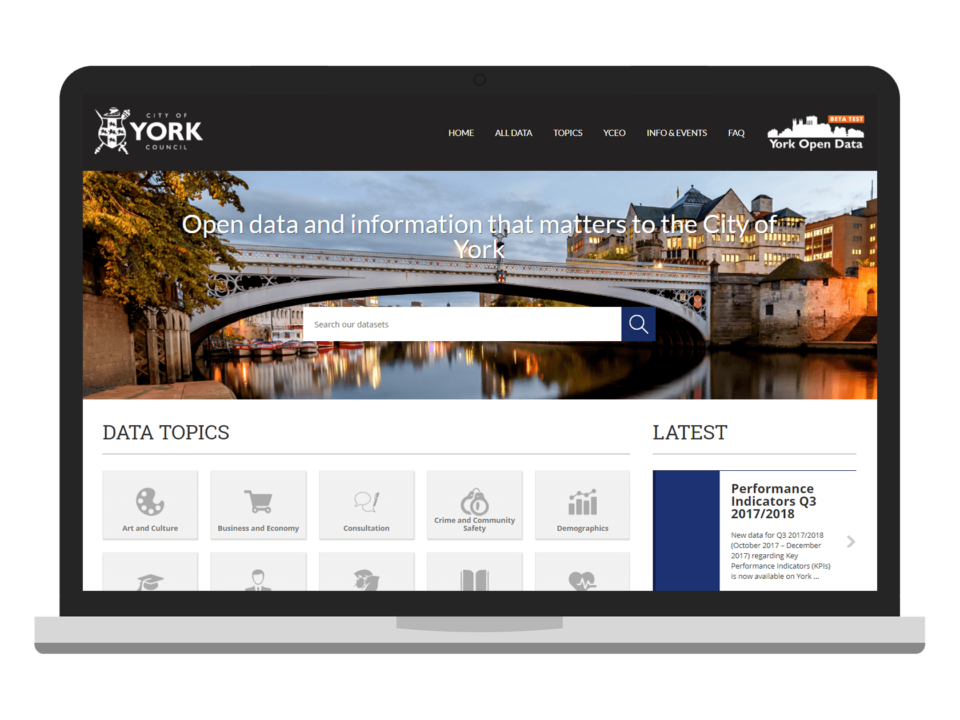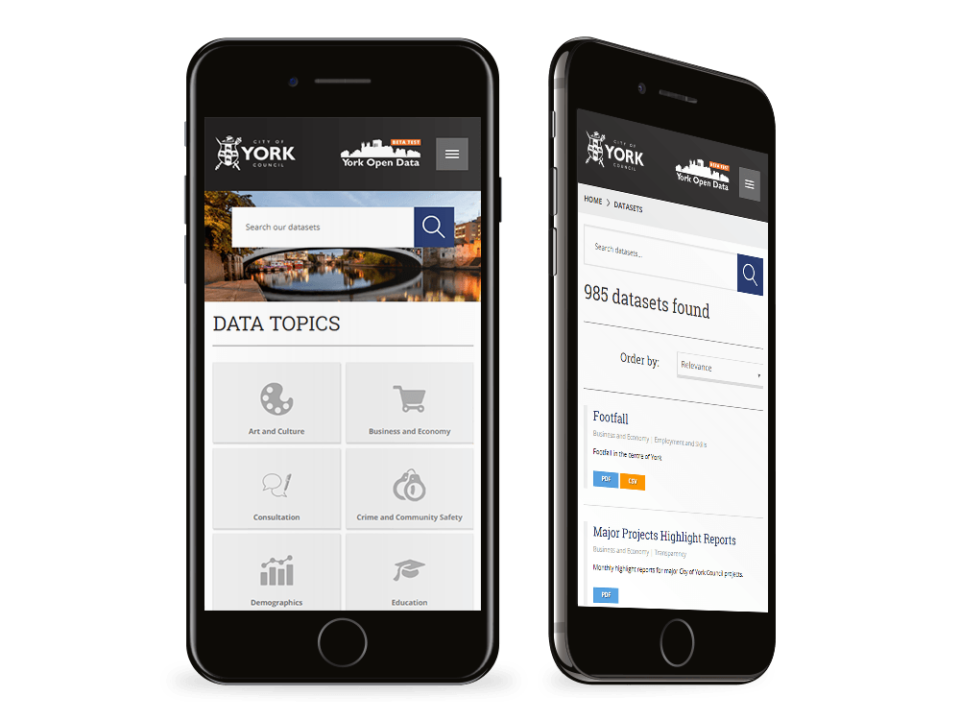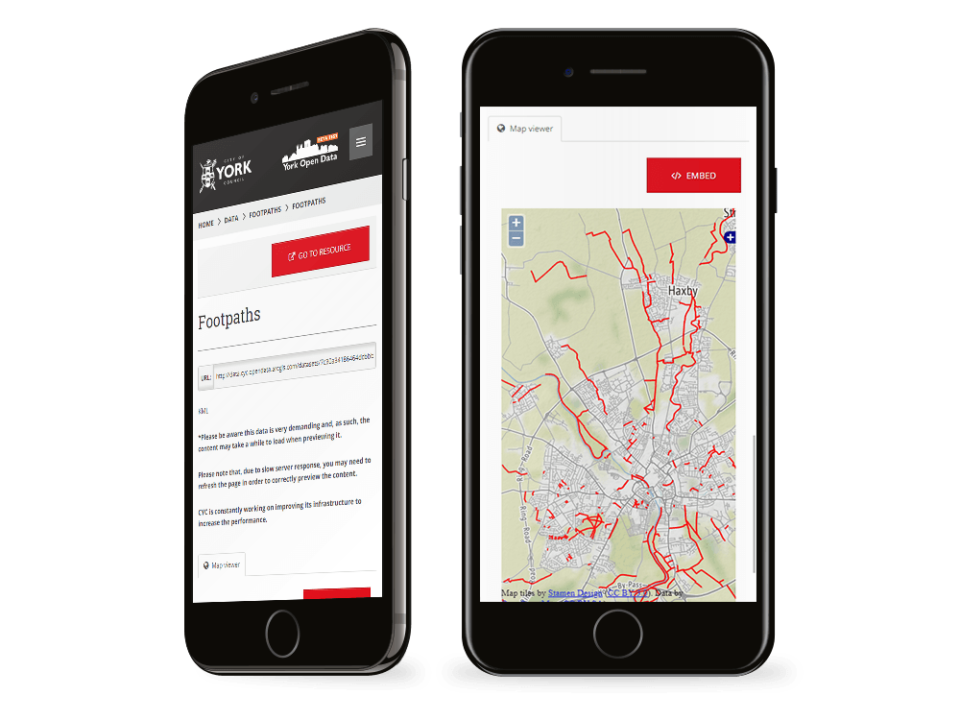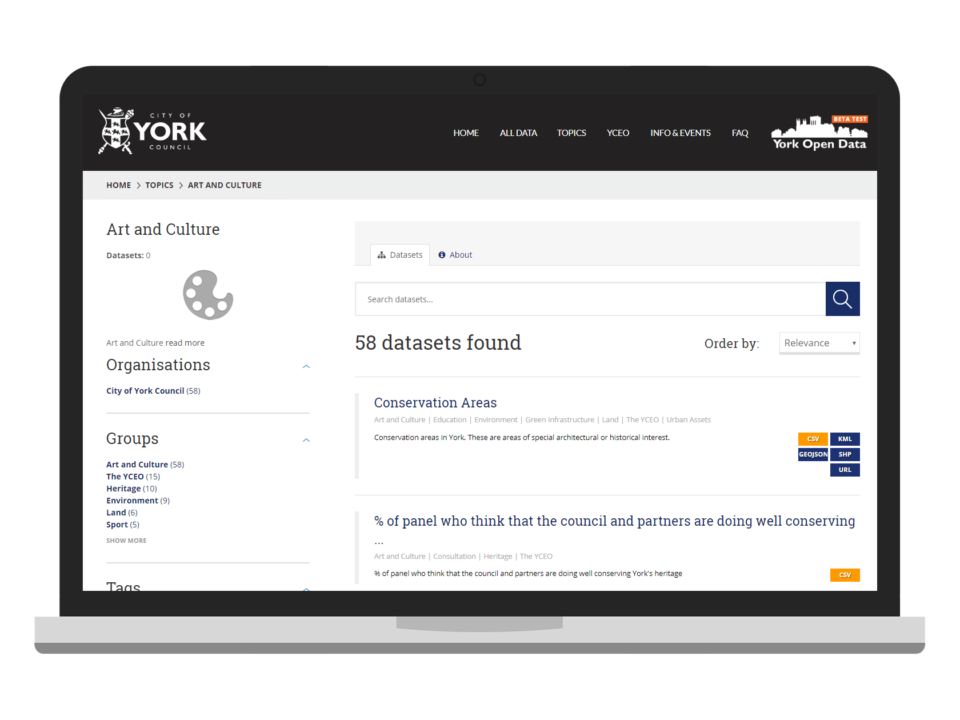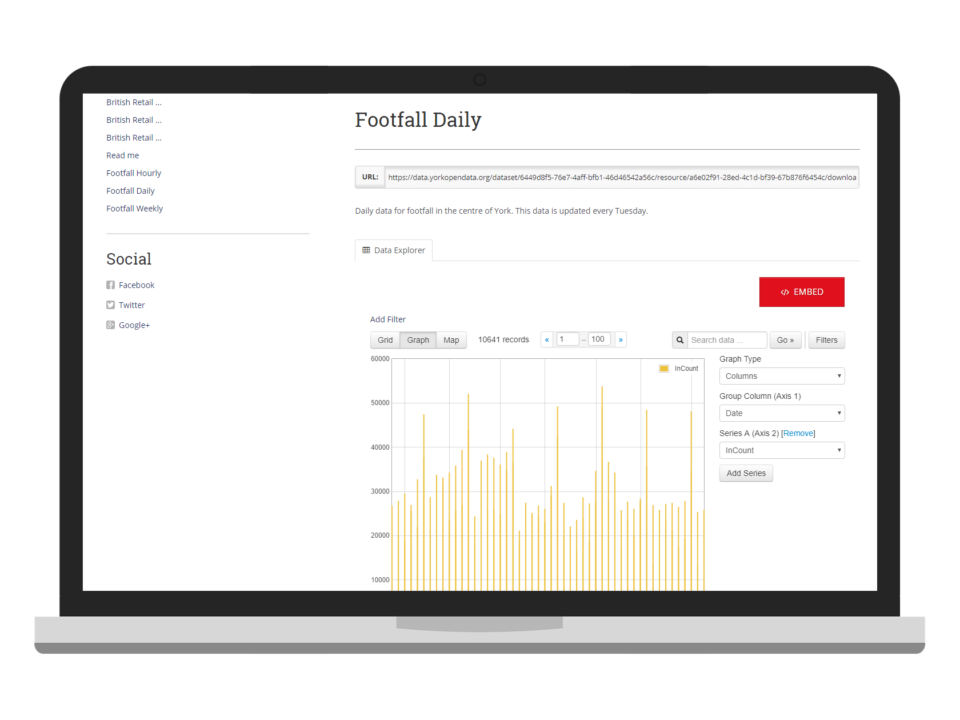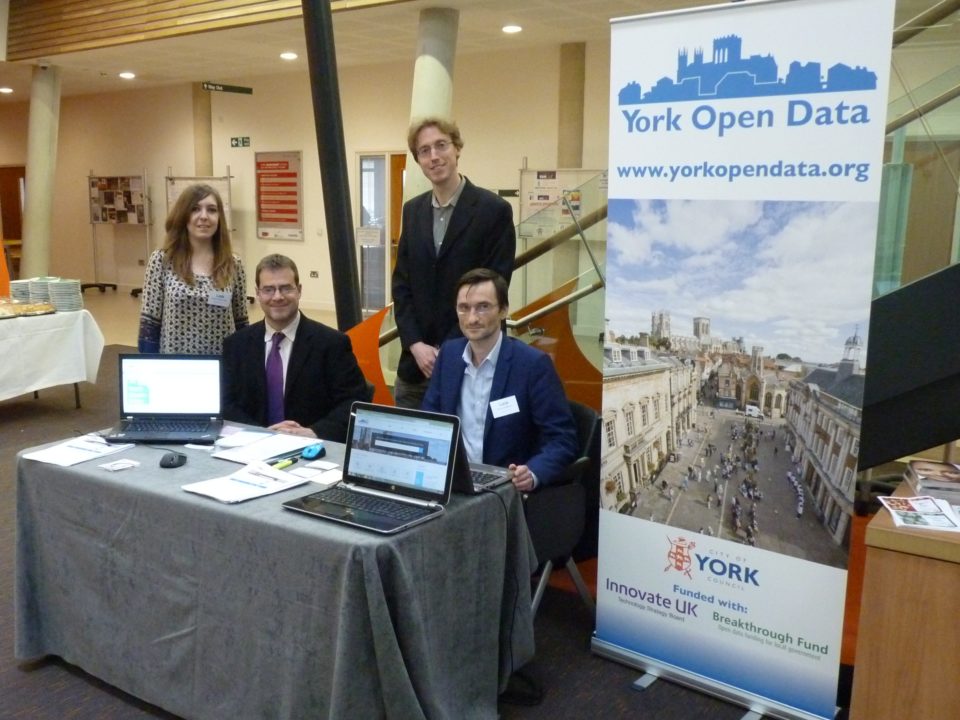York Open Data
York Open Data is a huge step forward for the transparency and open government agenda in York. It’s an online clearinghouse of big data about York covering everything from council salaries to air pollution to the number of library books being borrowed. We worked with the City of York Council Business Intelligence Hub to design a system based around the CKAN platform – the de-facto standard for open data.

